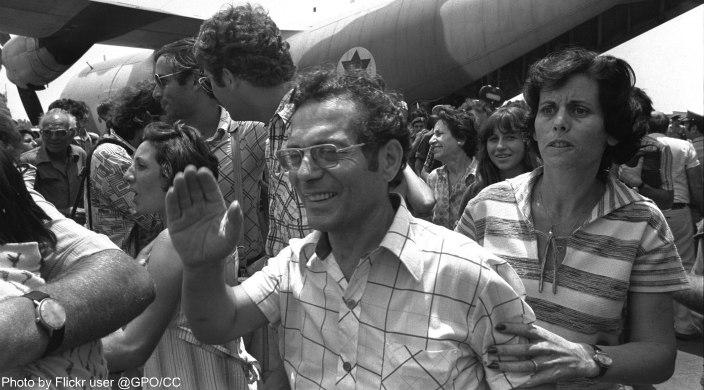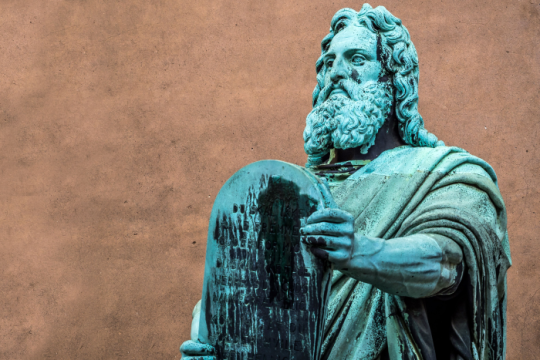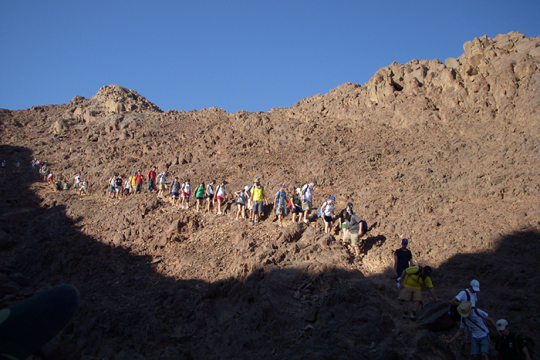
Captain Michel Bacos and the crew of their hijacked Air France Airbus refused to abandon the 94 Israeli and Jewish passengers who had been selected as hostages by the team of Palestinian and German terrorists who forced the plane to land at Uganda’s Entebbe Airport on June 27, 1976.
The captain, having fought with de Gaulle’s Free French forces during World War II, saw a parallel between how Jews were being treated at Entebbe and how they had been treated at Auschwitz. “I knew precisely what fascism was all about,” he told Jeremy Josephs in a 2012 interview with The Jewish Chronicle: “I knew perfectly well what separation meant and what it would lead to…I wasn’t going to run off and leave my passengers to their fate, even though I was told I could leave.”
The two Palestinian hijackers, members of a Popular Front for the Liberation of Palestine splinter group, and the two Germans, Wilfried Bose and Brigitte Kuhlmann of the German Revolutionary Cells, allowed the 12-member Air France crew to declare themselves hostages, but denied the request of a nun to offer herself in exchange for a Jewish captive. She was flown out of Entebbe along with the other 144 released passengers.
As the Israeli government negotiated with the hijackers, it studied the feasibility of launching a rescue operation. Israeli planners estimated that about a third of the hostages might die in an armed assault. Prime Minister Yitzhak Rabin initially opted to meet the hijackers’ demand to exchange the hostages for more than 50 jailed Palestinians. The alternative was to airlift 100 Israeli elite commandos into a distant African nation ruled by Idi Amin, a ruthless dictator and sworn enemy of Israel. Adding to the difficulty, the terrorists claimed to have wired the building with explosives and vowed to kill all the hostages at the first sign of a military intervention.
When negotiations stalled, the terrorists extended the deadline to July 4, giving the Israelis enough time to complete the planning for Operation Thunderbolt.
Meanwhile, inside the Entebbe terminal, one of the hostage spokesmen, Auschwitz survivor, Yitzhak David had a fateful conversation with German terrorist Wilfried Bose, as witnessed by another former hostage, Ilan Hartuv, and reported in a July 8, 2011 article in Haaretz:
David showed him [Wilfried Bose] the number tattooed on his arm and said to him in German: ‘I was mistaken when I told my children that there is a different Germany. When I see what you and your friends are doing to women, children and the elderly, I see that nothing has changed in Germany.’
Bose, who up until then had been calm and resolute, blanched and trembled. ‘You’re wrong. I carried out terrorist acts in West Germany because the ruling establishment took Nazis and reactionaries into its service… My friends and I are here to help the Palestinians, because they are the underdog. They are the ones suffering.’
So Yitzhak David answers: ‘Well, then, when the Palestinians fulfill their promise and throw us in the sea, we’ll come to you to help us hijack Arab planes.’
When the shooting began, Bose was the only one of the terrorists who entered our hall with a Kalashnikov in hand. He pointed it at us, but immediately came to his senses and ordered us to retreat to the restrooms and find shelter there. He did not shoot at us, only at the soldiers. After he was killed in the crossfire, I saw that his Kalashnikov was aimed at them.
Three hostages died in the shootout. Had Bose immediately fired on the captives, many more likely would have died.
Although few would deny that the Israeli Defense Forces carried out a legendary rescue mission, we need to keep in mind that the operation could just as easily have been a disaster.
The rescue at the Entebbe Airport is widely celebrated in Israel as a great military triumph, as it should be. And Lt. Col. Yonatan Netanyahu, the only Israeli soldier killed and for whom the operation was renamed, is rightly remembered as a national hero.
On this 40th anniversary of the event, let us also remember the courage of Captain Michel Baros, who was inducted into the Legion of Honor, and his crew.
And let us also salute Yitzhak David, of blessed memory, the hostage who challenged Wilfried Bose to confront his own conscience as a German.



